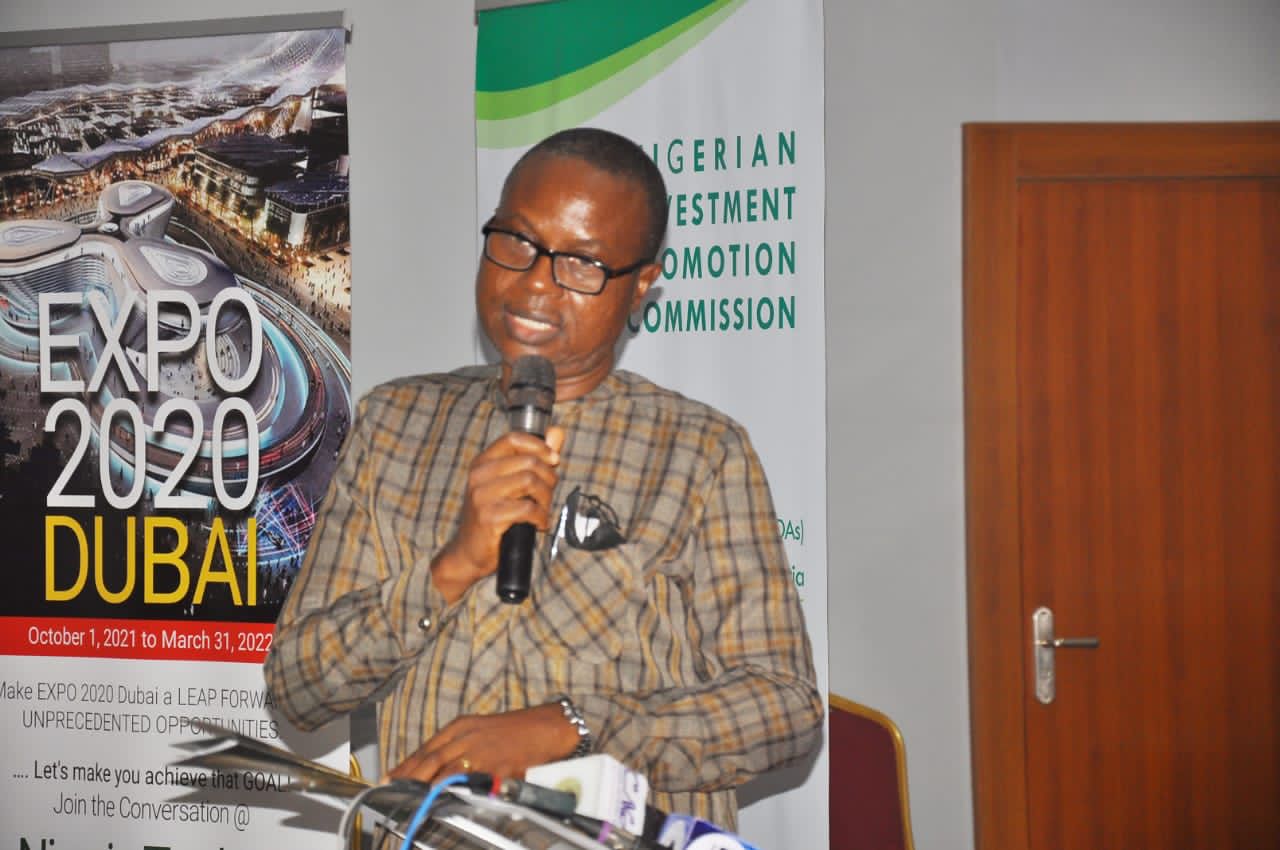PICTURE: Acting Executive Secretary, NIPC, Emeka Offor
By Bassey Udo
Only investment proposals valued at about $7.8billion out of a total $203.9billion announcements by various investors in the country between 2017 and 2020 actually materialized, the Nigerian Investment Promotion Commission (NIPC) has disclosed.
The Director, Strategic Services of the investment promotion agency, Abubakar Yerima, disclosed this in Abuja on Tuesday during a media briefing on the activities of the Commission.
Yerima said the $7.8billion represents about 3.8 percent of the total $203.9billon investment proposals announced by investors planned for execution in different parts of the country during the period.
Actual vs proposed
Details of the actual investments showed that out of about $66.35 billion worth of investment announcements made by various prospective investors in 2017, only $2.41 billion was actually materialized.
In 2018, only $78 million of investment announcements survived to actual execution, out of about $90.89 billion investment commitments made during the year.
Also, in 2019, the NIPC data showed out of a total investment pledges valued at about $29.91 billion by investors, actual investments was about $2.31 billion, while the figure increased to $2.39 billion actual investments in 2020 out of a total proposal of about $16.74 billion for the year.
Yerima said the proposed investment announcements tracked in the media by the NIPC Intelligence Monitoring Unit also showed that between July and September 2021, about $8.99 billion was tracked as investment announcements for the third quarter of the year.
He said the figure represented about 130 percent more than about $3.95 billion recorded in the corresponding period in 2020.
Proposals across states
The report showed that a total of 33 projects were tracked across eight States of the Federation during the period, with August as the most active during the quarter, with about 64 percent of the total announcements.
The top 10 announcements, Yerima said, accounted for 96 percent of the volume tracked, compared to the third quarter of 2020, which showed a marked improvement in the level of investor confidence in Nigeria despite the negative impact of COVID-19.
During the period, Yerima identified Lagos as the State that received the largest share of the investment announcements, with 20 projects valued at about $7.29 billion and accounting for 81 percent of the total proposals.
The projects were in the area of manufacturing, information and communications, finance and insurance, human health and social services, and electricity.
The report said Rivers State recorded about $300 million worth of investment announcements in manufacturing and transportation, while Oyo State had $231 million announcements in electricity and trade (e-commerce).
The four States accounted for abouy 87 percent of the total investments, with the most attractive sectors being manufacturing (42 percent), electricity, gas, steam and air conditioning supply (25 percent), information and communications (23 percent) and transportation (7 percent).
Domestic investors were the most active during the period, accounting for 47 percent of the total announcements, followed by foreign announcements from South Korea (22 percent), South Africa (16 percent), and Spain (6 percent).
Although the NIPC did not proffer reasons for the wide disparity between proposed investment announcements and actual investments during the period, analysts said the reason may not be too far away from the growing aparthy as a result of the rising insecurity across the country and the declining business environment.
One of the analysts who is the immediate past Director-General of the Lagos Chamber of Commerce and Industry (LCCI), Muda Yusuf, said recently that investors were afraid of the atmosphere of uncertainty in the economy as a result of the insecurity in parts of the country.
“Investors are very conservative. They are afraid of deploying their resources to places they are not sure of their security and safety, and they will not hesitate to change their minds about investment proposals immediately they sense any threat.
“That is why Nigeria will continue to face difficulties attracting investments as a preferred investment destination until the current issue of pervading insecurity and other risks are resolved,” he said.
To boost investors’ confidence and improve access to the services, the NIPC rolled out a digital platform called “One Stop Investment Centre (e-OSIC).
The acting Executive Secretary of the Commission, Emeka Offor, said the platform would enhance the effectiveness of the Commission by streamlining investment entry processing.
Offor said the e-OSIC, which has fone live, was established in 2006 with 13 Federal, State and non-governmental organizations as participating agencies.
“With e-OSIC, investors can now have access to all services offered at the OSIC remotely, and apply for business registration, submit relevant documents, and make appropriate fee payments.
“Through the platform, NIPC will be able to track and review the services of participating agencies at the Centre.”
The Single Window Investors’ Platform (SWIP), Offor said, has four components for e-business facilitation in line with the e-government initiative of the Federal Government, and the SWIP project commenced in 2020 to enable NIPC leverage technology to better deliver on its mandate.
With the e-OSIC, he said investors can apply for business registration, submit relevant documents, and make appropriate fee payments, while NIPC would be able to track and review the services of participating agencies at the Centre.
Offor said the NIPC was also putting in place a mechanism that would allow the validation of investment announcements and progress them to actual investments.




